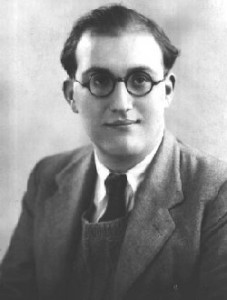A Quote by Michael Polanyi
I hold that the propositions embodied in natural science are not derived by any definite rule from the data of experience, and that they can neither be verified nor falsified by experience according to any definite rule.
Related Quotes
Talk can neither be verified nor falsified in any rigorous sense. This is an open secret which hermeneutics and aesthetics, from Aristotle to Croce, have laboured to exorcise or to conceal from themselves and their clients. This ontological, which is to say both primordial and essential axiom (or platitude) of ineradicable undecidability needs, none the less, to be closely argued.
Anarchism is no patent solution for all human problems, no Utopia of a perfect social order, as it has often been called, since on principle it rejects all absolute schemes and concepts. It does not believe in any absolute truth, or in definite final goals for human development, but in an unlimited perfectibility of social arrangements and human conditions which are always straining after higher forms of expression, and to which for this reason one can assign no definite terminus nor set any fixed goal.
I am credited with being one of the hardest workers and perhaps I am, if thought is the equivalent of labour, for I have devoted to it almost all of my waking hours. But if work is interpreted to be a definite performance in a specified time according to a rigid rule, then I may be the worst of idlers.
Philosophy is to be studied, not for the sake of any definite answers to its questions, since no definite answers can, as a rule, be known to be true, but rather for the sake of the questions themselves; because these questions enlarge our conception of what is possible, enrich our intellectual imagination and diminish the dogmatic assurance which closes the mind against speculation; but above all because, through the greatness of the universe which philosophy contemplates, the mind is also rendered great, and becomes capable of that union with the universe which constitutes its highest good.
Nobody is fit to rule anybody else. It is not alleged that Mankind is perfect, or that merely through his/her natural goodness (or lack of same) he/she should (or should not) be permitted to rule. Rule as such causes abuse. There are no superpeople nor privileged classes who are above 'imperfect Mankind' and are capable or entitled to rule the rest of us. Submission to slavery means surrender of life.
I am somewhat uncertain whether there is a definite factual question as to whether natural language handles truth-value gaps. Nor am I even quite sure that there is a definite question of fact as to whether natural language should be evaluated by the minimal fixed point or another, given the choice of a scheme for handling gaps. We are not at the moment searching for the correct scheme.
The more a man is imbued with the ordered regularity of all events the firmer becomes his conviction that there is no room left by the side of this ordered regularity for causes of a different nature. For him neither the rule of human nor the rule of divine will exist as an independent cause of natural events.
To experience the satisfaction and enjoyment of success in life, a definitive goal is essential. Many people fail at this vital point. The goal must be definite and specific, not in any sense vague or fuzzy. And to prove attainable, its image needs to be sharpened and resharpened continually, so that it stands out vividly in your thoughts. You must know, at all times, precisely and for certain what it is you want to accomplish and achieve. Strong and organized purposefulness toward a definite objective will focus your powers into a strong motivation in attainment of your goal.





































